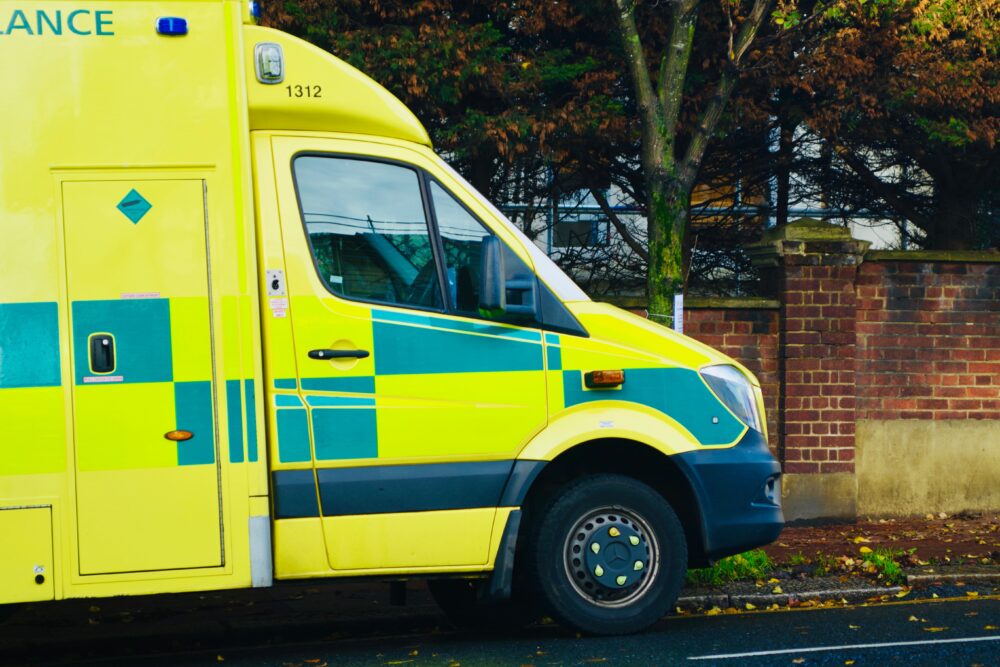
latest
Mental health pilot reduces A&E admissions
A project that involves a police officer and mental health practitioner attending a mental health emergency call-out together has resulted in a drop in patients needing to attend A&E

"There are nights when there are six or seven jobs happening at once. When that happens... we have to decide as a team how to prioritise those calls and what the immediate risk is." Rachael Osbourne, mental health nurse
Schemes designed to prevent people experiencing a mental health crisis ending up in A&E, as well as to save police time, are being piloted across the North West of England.
Police forces nationwide have complained that dealing with mental health-related calls eat into time when officers should be dealing with crime. An estimated 20-40% of police time is spent dealing with call-outs relating to mental health emergencies, and some forces have seen a tripling in the number of call-outs attended between 2019 and 2021. Often a police officer has to accompany a patient to A&E and then stay with them for hours while they wait to be seen.
In an effort to address this, Pennine Care NHS Foundation Trust and Greater Manchester Police (GMP) set up a Mental Health Joint Response Unit, which involves a mental health practitioner and police officer attending mental health crisis call outs together to provide the appropriate support.
The service, which runs from 5pm to 1am seven days a week, has so far helped approximately 2,000 people in a year. Staff say that if a mental health specialist had not attended, 800 of those people would have been taken to hospital, with a further 607 detained for their own safety. These 607 avoidances are estimated to have saved £1,232,210 (This doesn’t include the time saved by avoiding an unnecessary A&E trip.)
A&E is last resort
The most frequent outcome was providing mental health advice and support on the scene (504), followed by signposting Pennine Care’s 24-hour helpline (380).
The role of the clinician is to assess patients at the scene to ensure every appropriate community-based care option is considered, so that A&E, or an admission to a secure section 136 suite (place of safety), are a last resort for those who really need it.
Rachael Osbourne, a mental health nurse who helped launch the scheme in Tameside, believes that working alongside the police helps prevent unnecessary hospital admissions. “There are nights when there are six or seven jobs happening at once,” she told ITV. “When that happens… we have to decide as a team how to prioritise those calls and what the immediate risk is.”
PC Sean Taylor, who has been involved in the pilot since it started, said: “It can get very, very busy but people who are in crisis can’t help it, and I personally would much rather they ring and ask for support than struggle in silence.”
If PC Taylor was working alone he might have to wait with people in A&E or put them in a cell to keep them safe, but having Rachael on a call out with him means she is able to access health records, give medical advice and make referrals.
“There are many different ways that things could potentially end,” PC Taylor added, after attending a call out to a welfare check on a woman with a history of self-harming.
“If the police are involved with the ambulance, or without the joint response vehicle, the only two ways we could realistically look at are either a voluntary attendance at A&E or, if she was in a public space, to utilise powers under section 136 if immediate intervention is required.
“In this case we were able to do an assessment and establish if there was any risks and see if there was any support we could offer.”
A similar service is being provided by Greater Manchester Mental Health NHS Foundation Trust (GMMH) and GMP across the other five boroughs of Greater Manchester – Bolton, Manchester, Salford, Trafford, and Wigan.
Funding for the service has been secured until July 2023, with discussions underway to extend it further.
FCC Insight
Figures show a significant rise in the past five years in the number of mental health incidents that police officers are called out to. Many police chiefs have expressed concern that their officers spend too much time responding to mental health emergencies, and Bedfordshire Police has announced that it will begin charging the NHS for time its officers spent on unnecessary mental health calls. The pilot in Greater Manchester, which involves a mental health professional and police officer working together to support people in mental health distress, has been successful in reducing the number of A&E trips and detentions under the Mental Health Act. The savings in time and money for both the police and the NHS are clear, though we would welcome more information on the outcomes for patients. With that caveat, this seems to be a promising model that could be rolled out elsewhere.